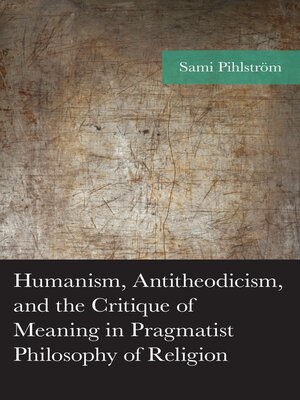Humanism, Antitheodicism, and the Critique of Meaning in Pragmatist Philosophy of Religion
ebook ∣ American Philosophy Series
By Sami Pihlström

Sign up to save your library
With an OverDrive account, you can save your favorite libraries for at-a-glance information about availability. Find out more about OverDrive accounts.
Find this title in Libby, the library reading app by OverDrive.



Search for a digital library with this title
Title found at these libraries:
| Library Name | Distance |
|---|---|
| Loading... |
Humanism, Antitheodicism, and the Critique of Meaning in Pragmatist Philosophy of Religion develops a distinctive approach to pragmatist philosophy of religion, and more generally to pragmatist investigations of the human search for meaning, by emphasizing what may be considered two closely interrelated main features of this tradition: humanism and antitheodicism. Humanism here emphasizes the need to focus on religion as a human practice within human concerns of meaningfulness and significance, as distinguished from any metaphysical search for cosmic meaning. Antitheodicism, in turn, stands for the refusal to accept any justification, divine or secular, for the experiences of meaninglessness that individuals undergoing horrendous suffering may have. Developing a critical form of pragmatism emphasizing these ideas, Sami Pihlström explores the relations between pragmatism and analytic philosophy in the philosophy of religion, especially regarding the question of religious meaning, as well as the significance of literature for philosophy of religion, with particular emphasis on William James's pragmatism.






